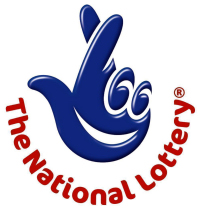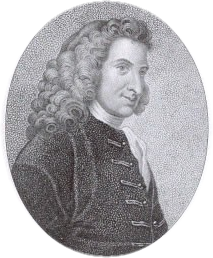 Each week, National Lottery players raise £25 million per week for Good Causes across the UK.
Each week, National Lottery players raise £25 million per week for Good Causes across the UK.
National Lottery players have raised over £23 billion for Good Causes.
Question: Who distributes the Good Causes money ?
Answer: Non elected quangos. This explains why we get the cases where a £500 grant application to restore a war memorial is turned down but a £500,000 grant application for theatre group promoting new age agendas is allowed.
There are currently 14 Lottery funders:
* Arts Council England
* Arts Council of Northern Ireland
* Arts Council for Wales
* Scottish Arts Council
* Scottish Screen
* UK Film Council
* Sport England
* Sport Scotland
* Sports Council for Wales
* Sports Council Northern Ireland
* UK Sport
* Heritage Lottery Fund
* Big Lottery Fund (a merger of The Community Fund and New Opportunities Fund)
* Olympic Lottery Distributor
In the period up to March 2010, around 28% of total National Lottery revenue is expected to go to the Good Causes. Source for the above: National Lottery.
The British Gazette has a far better idea. Let ordinary people decide where the money goes. Not the establishment elite. There should be a complete reform of the National Lottery with a new National Lottery Act.
Firstly, there should be no limit on the number of times a jackpot rolls over. A lottery is a lottery is a lottery.
Secondly, the question of convicted persons winning the lottery should be addressed. There should be no repeat of the case of Iorworth Hoare. Mr. Hoare was jailed for life in 1989 after the attempted rape of an ex-teacher in Leeds in the West Riding of Yorkshire. He had six previous convictions for rape, attempted rape and indecent assault and the trial judge said: “For every second you are at liberty, some woman is at risk.”
This should mean that any major winner of £50,000 or above should have their details checked by the Criminal Records Office. Should they possess a criminal record for anything other than minor motoring offences the dispersal of the prize money should be decided by a tribunal of independent persons (yes, we admit, a quango). This tribunal would seek and take representations from the criminal’s victims and decide just how much of the prize money (if any) the criminal should receive and how much (if any) the victims receive. There would be an appeals process for both parties available through the civil courts.
Thirdly, the question of anonymity should be addressed. State lotteries are common in the U.S.A. In certain states the authorities are of the opinion that lotteries are public money and therefore the public have a right to know. The British Gazette would suggest that this is not strictly the case. The monies flowing into the lottery come from millions of individual private purchases – sales of lottery tickets. What the public do have a right to know is where the money not given to the prize winners goes.
Fourthly, we have to address the question of how to get ordinary people involved in deciding where the money goes. This is the British Gazette’s proposal:
That the new Lottery Act sets up a new statutory body known as the Lottery Council with its headquarters in London. It should have a secretariat composed of civil servants and should report to a government department. There should be a full time civil service position of General Secretary of the Lottery Council. He or she (a civil servant) would act as the secretary of the Lottery Council and attend in that role with persons known and appointed (for life) as Lottery Councillors. Who should be these individuals you ask ? Those jackpot winners of the National Lottery and Euro-Millions Lottery who:
1. Have no criminal convictions.
2. Opt for the details of their win to be made public knowledge.
3. Accept the invitation to become a Lottery Councillor – it would not be compulsory!
Initially, to get a good number of councillors the following steps should be taken following the new Lottery Act receiving the Royal Assent. Criminal Records checks should be made on all previous National Lottery and Euro-Millions lottery winners – whether they had opted for anonymity or publicity. The details of those with convictions should not be made public however and their winnings should not be subject to any form of claw-back as this would be retrospective legislation that is not in the British tradition.
Those previous winners found to have no criminal convictions would be invited to become Lottery Councillors. Those jackpot winners who had opted for anonymity however would have to make public in a formalised setting their status as lottery winners.
The new Lottery Act would impose a statutory duty on the Lottery Council and inter-alia the Lottery Councillors to make grants only to registered charities in the U.K.
The Lottery Councillors would not be paid but would receive modest travelling expenses.
And Finally: the British Gazette would now wish to advise its readers about actually playing the lottery. Many will e familiar with the phrase, “You’ve got to be in it to win it!”
This is true. Ones chances of winning the lottery are zero if you do not buy a lottery ticket. Oxbridge Masters degrees in mathematics and/or logic are not required to understand this! However many members of the British Public have a mistaken view about statistics.
The odds of winning the National Lottery are 13,984,816 to 1. You have a greater chance of being killed by lightning at 60,000 to 1, being eaten by a shark at 3,700,000 to 1 or being killed in a plane crash at 10,500,000 to 1.
The EuroMillions jackpot is even less attractive, with odds of 76,275,360 to 1.
A mistake many people make is to believe that if their chances of winning the lottery jackpot are 13,984,816 to 1 in respect of the National Lottery each Wednesday and Saturday and that their chances of winning the EuroMillions jackpot each Friday are 76,275,360 to 1, then their chances can be improved by buying more than one lottery ticket. Many mistaken believe that they improve their odds of winning from 13,984,816 to 1 to 6,992,408 to 1 in the case of the National Lottery draw and from 76,275,360 to 38,137,680 to 1 in the case of the EuroMillions draw buy buying two tickets for each draw.
This is NOT the case. If you buy two tickets each ticket will have exactly the same odds of winning – whatever set of numbers are chosen. Your combined odds of winning are improved however but only by a factor of 1. That means in the case of the National Lottery your chances of winning have improved from 13,984,816 to 1 to 13,984,815 to 1 and from 76,275,360 to 1 to 76,275,359 to 1 in the case of the EuroMillions draw.
This means that for doubling your stake you have acheived the most minute improvement in your chances of winning the jackpot.
Remember that Henry Fielding (the author and playwright) wrote the following in 1732:
A Lottery is a Taxation,
Upon all the Fools in Creation;
And Heav’n be prais’d,
It is easily rais’d,
Credulity’s always in Fashion;
For, Folly’s a Fund,
Will never lose Ground;
While Fools are so rife in the Nation.


I dislike any spawning of yet another quango. I like the “KIS” principle (Keep It Simple)
If the winner is a criminal, over some agreed level of criminality, then surely we should simply roll the prize over?
Mind you, I doubt the new legislatory body (Europe) would allow any of the above sound system.